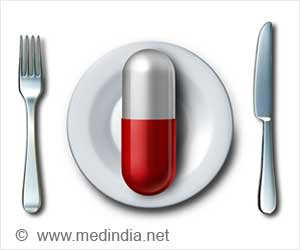“There is a common expectation that coffee increases alertness and psychomotor functioning,” said Prof. Nuno Sousa of the University of Minho, corresponding author of the study in
and Field Chief Editor of the journal. “When you get to understand better the mechanisms underlying a biological phenomenon, you open pathways for exploring the factors that may modulate it and even the potential benefits of that mechanism.”
They recruited persons who drank at least one cup of coffee per day and performed two brief MRI scans – one before and one after drinking coffee or hot water containing the same amount of
).
They conducted sociodemographic interviews with the subjects before doing two brief functional MRI scans: one before and one 30 minutes after either taking caffeine or drinking a standardized cup of coffee. The participants were instructed to relax and allow their minds to wander throughout the functional MRI scans.
Advertisement
Because of the known neurochemical effects of coffee, scientists predicted that people who drank coffee would have greater integration of networks linked to the prefrontal cortex, which is associated with executive memory, and the default mode network, which is involved in introspection and self-reflection processes.
They discovered that after drinking coffee and ingesting caffeine, the connection to the default mode network was reduced. This shows that both made people more willing to switch from ‘rest’ to ‘work’ mode on tasks.
The Experience of Having a Cup of Coffee is What Makes You Feel Awake
Coffee, on the other hand, enhanced connections in the higher visual network and the right executive control networkareas of the brain involved in working memory, cognitive regulation, and goal-directed behavior.
This did not occur when subjects merely consumed caffeine. In other words, if you want to feel not just alert but also ready to go, caffeine alone will not sufficeyou must also enjoy that cup of coffee.
“Acute coffee consumption decreased the functional connectivity between brain regions of the default mode network, a network that is associated with self-referential processes when participants are at rest,” said Dr. Maria Picó-Pérez of Jaume I University and first author.
READ RELATED: Boost Your Brain Health: Avoid These 10 Habits Till Old Age
“The functional connectivity was also decreased between the somatosensory/motor networks and the prefrontal cortex, while the connectivity in regions of the higher visual and the right executive control network was increased after drinking coffee. In simple words, the subjects were more ready for action and alert to external stimuli after having coffee.”
“Taking into account that some of the effects that we found were reproduced by caffeine, we could expect other caffeinated drinks to share some of the effects,” added Picó-Pérez. “However, others were specific for coffee drinking, driven by factors such as the particular smell and taste of the drink, or the psychological expectation associated with consuming that drink.”
The authors noted that it is possible that the experience of drinking coffee without caffeine caused these benefits: this study was unable to distinguish the effects of the experience alone from the experience mixed with caffeine.
There is also the possibility that the benefits claimed by coffee drinkers are attributable to the reduction of withdrawal symptoms, which this study did not examine.
“The changes in connectivity were studied during a resting-state sequence. Any association with psychological and cognitive processes is interpreted based on the common function ascribed to the regions and networks found, but it was not directly tested,” cautioned Sousa.
“Moreover, there could be individual differences in the metabolism of caffeine among participants that would be interesting to explore in the future.”
Reference :
- Coffee consumption decreases the connectivity of the posterior Default Mode Network (DMN) at rest – (https:www.frontiersin.org/articles/10.3389/fnbeh.2023.1176382/full)
Source: Medindia










